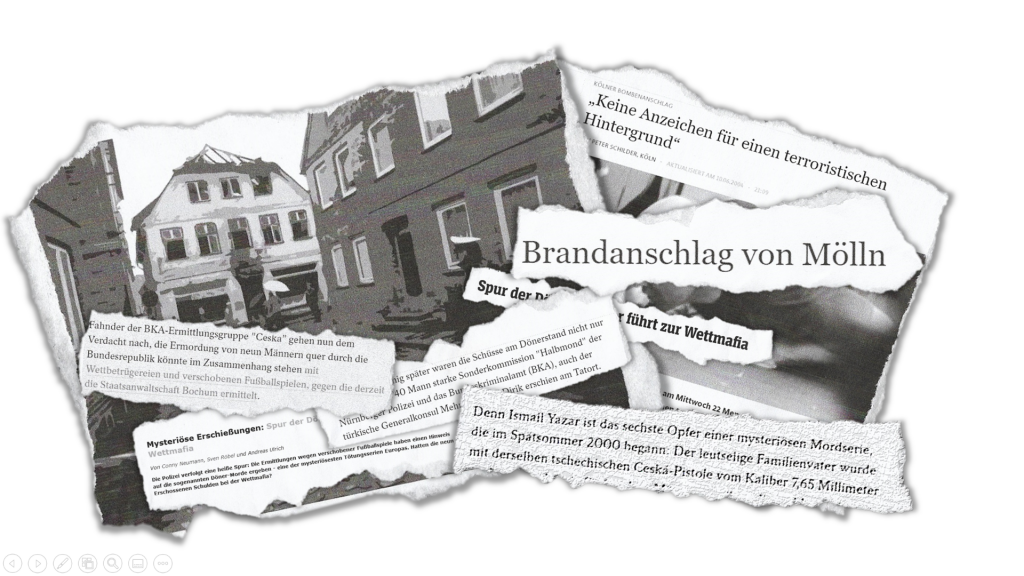
Pushed away and unheard
Today we know: The right-wing terrorist network National Socialist Underground (NSU) has been murdering people out of racist motivation for years. Many know the names of the so-called ‘NSU trio’. Yet very few know the names of those murdered:
- Enver Şimşek (38) – murdered in Nuremberg on September 9, 2000
- Abdurrahim Özüdoğru (49) – murdered in Nuremberg on June 13, 2001
- Süleyman Taşköprü (31) – murdered in Hamburg on June 27, 2001
- Habil Kılıç (38) – murdered in Munich on August 29, 2001
- Mehmet Turgut (25) – murdered in Rostock on February 25, 2004
- İsmail Yaşar (50) – murdered in Nuremberg on June 9, 2005
- Theodoros Boulgarides (41) – murdered in Munich on June 15, 2005
- Mehmet Kubaşık (39) – murdered in Dortmund on April 4, 2006
- Halit Yozgat (21) – murdered in Kassel on April 6, 2006
In the past, the perspective of the victims and relatives of the murdered and their suffering was not only ignored when the motives of the perpetrators were unknown.
In the arson attack in Möllnb on the night of November 23, 1992, in the flames of the burning house died:
- Bahide Arslan (51)
- Ayşe Yılmaz (14)
- Yeliz Arslan (10)
Afterwards, hundreds of letters of solidarity and condolences reached the city – but not those affected. It was only in 2019 that Ibrahim Arslan learned of the letters and demanded that they be handed over. The family members were also not allowed to actively participate in the commemoration ceremonies. The city took over the organisation, but they refused to let those affected speak. A memorial service was initiated by those affected: “Möllner Rede im Exil” (The Mölln Speech in Exile). Not in Mölln, but in a different German city each year.
This example shows how commemoration often unfolds in Germany: Frequently, the whitemajority society does not listen to those affected. Therefore, parallel networks of Doing Memory often emerge in solidarity with those affected by right-wing violence, initiated by those affected and supported by civil society.
Listening
German remembrance culture has to learn to listen and also to make the voices of those affected be heard. The participants in the workshops also reflected on the perspective of those affected.